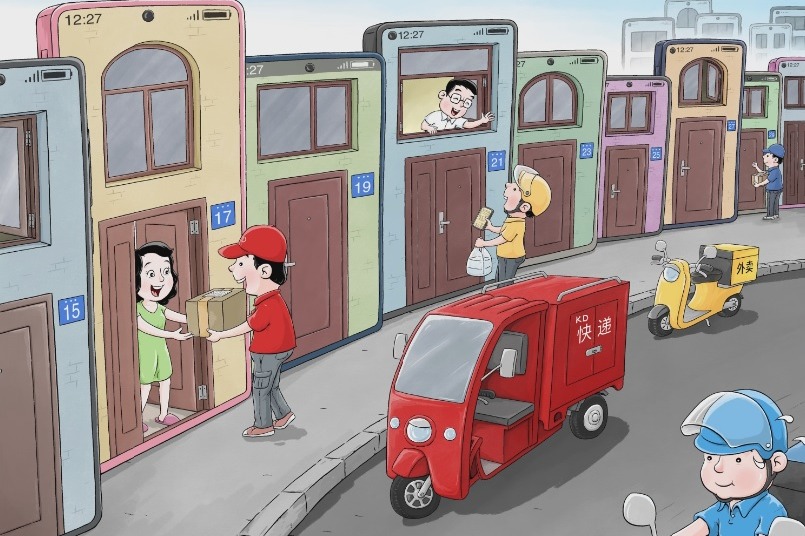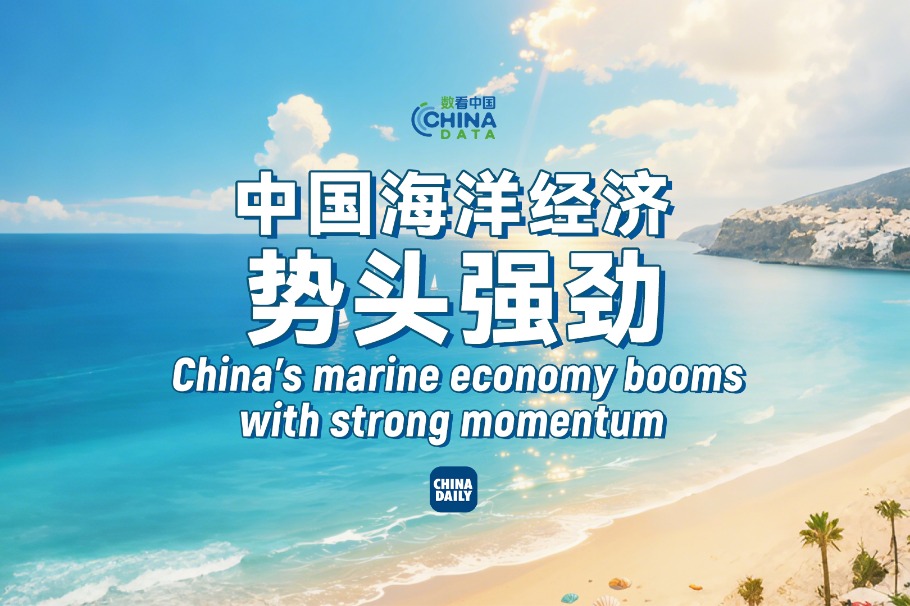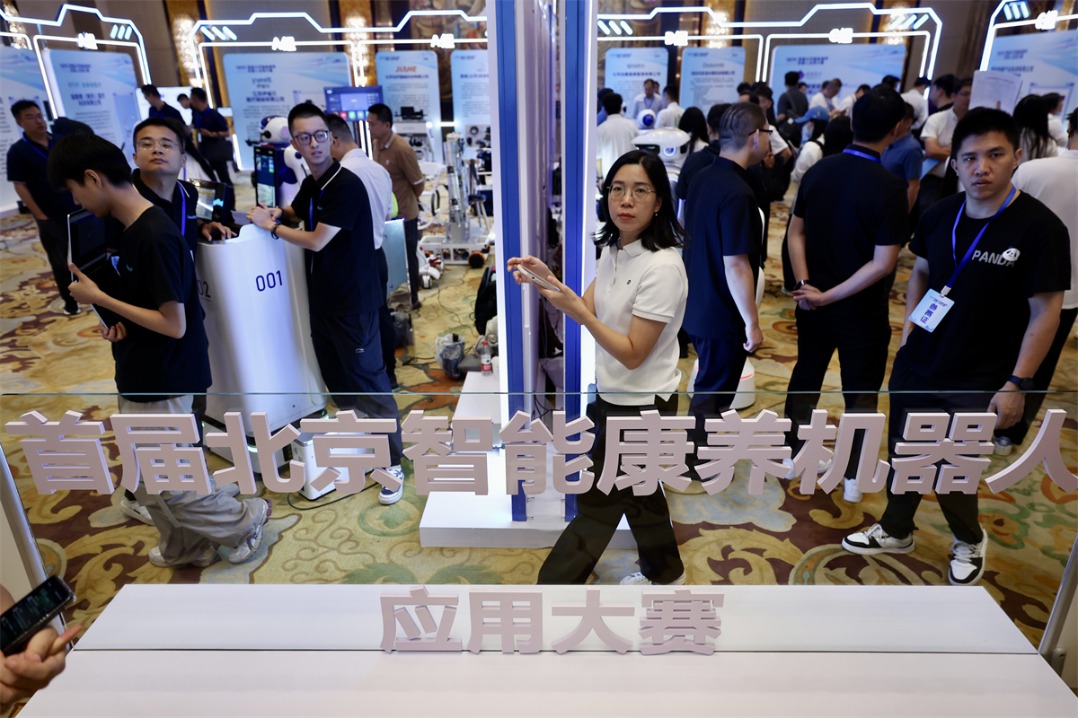Keep Global South united and cooperating


China must do more to accurately identify the most urgent and sustainable projects in recipient countries, concentrating limited funds and promoting overall impact
The Global South's economic power and political prominence is expanding. In 2024, BRICS countries hold 35 percent of the world's GDP compared to 30 percent held by G7 countries.
Meanwhile, the convergence of several crises over the past years has deepened the divide between the Global South and the Global North. The West was slow in delivering medical supplies and vaccines in the early days of the outbreak of the COVID-19 pandemic. The much-anticipated World Bank-International Monetary Fund debt service suspension initiative ultimately proved to be a drop in the bucket needed for managing debilitating debt, and the Western calls for friend-shoring, decoupling and de-risking will only make things worse. The weaponization of the West's institutional architecture is also causing grave concern given the impression that sanctions are a tool for defending Western interests.
Comparatively speaking, cooperation among the Global South countries has several strengths. First, it emphasizes the principles of solidarity and cooperation, noninterference in internal affairs and mutual respect. Cooperation among Global South countries is different from the North-South cooperation, which is attached with conditionalities. It is driven by the demands of the countries in the Global South and ensures their "ownership" of the projects.
Second, it emphasizes mutually beneficial cooperation. Cooperation among Global South countries contributes to developing a greater sense of self-responsibility for development in developing countries, provides opportunities for trial and error, builds development capacity and enhances sustainability.
Third, it makes development a priority, making great contributions to industrialization, urbanization, economic growth and job creation.
Fourth, the policies and technical solutions explored by the Global South countries during their development are more-often-than-not dynamic, applicable and economical, and their willingness to share their experiences and best practices with other countries is greater.
A 2016 policy brief by the United Nations Development Programme outlined six important aspects of the developmental role of cooperation among the Global South countries. They include: helping liberate and upgrade production capacities, promoting the return of the infrastructure development agenda, facilitating low-cost skills and technology transfer, sharing more relevant and adaptable public policies, providing emergency humanitarian assistance, and exploring joint solutions to address common challenges.
In addition, regional cooperation mechanisms such as the African Union or the Association of Southeast Asian Nations, have also contributed significantly to the resolution of collective problems.
Nevertheless, there are multiple threats to cooperation among the Global South countries. The first one is related to the divergent interests resulting from the imbalance in development. Development conditions and stages of development determine the wide variation in cooperation needs of the Global South countries. The second is about interference, divisions and competition among countries of the Global North. Changes in the international landscape and great power rivalries are making development assistance an important tool of geopolitical competition. Third, mutual understanding among the countries of the Global South is limited and easily influenced by Western narratives. Currently, the West has a monopoly on media and information resources, and countries of the Global South often rely on Western media rather than direct communication to understand each other. Many of the Western narratives do not take into account the differences in the starting points and stages of development of different countries in the process of modernization.
Over the years, China has become an important contributor to the development of the Global South. First, China provides new conceptual leadership. The community with a shared future for mankind, as the biggest concept that China contributes to the international community in the new era, aims to advocate a new type of partnership with mutual respect and equal treatment, a global governance pattern of joint contribution, shared benefits, and extensive consultation, a global development prospect with win-win cooperation, openness and inclusiveness, a pluralistic civilization system of harmony, inclusiveness, and respect for differences, and a global ecosystem that puts Mother Nature and green development first.
Second, China provides new development mechanisms and approaches. China's proposal and efforts to promote international cooperation on the Belt and Road Initiative, its creation or joint creation of investment and financing platforms such as the Asian Infrastructure Investment Bank, the New Development Bank and the Silk Road Fund, and its initiative to host the China International Import Expo, have played a key role in leading the process of economic globalization.
The Global Development Initiative and its call for the creation of a global community of development are aimed at promoting world economic recovery and the post-pandemic reconstruction in developing countries, pushing global development toward a new stage of balance, coordination and inclusiveness, and pushing the international community to accelerate the implementation of the UN 2030 Agenda for Sustainable Development. In terms of cooperation modalities, China focuses on combining "hard "and "soft" assistance, integrating foreign assistance with mutually beneficial cooperation, dovetailing with the development strategies of recipient countries, and realizing economic complementarity and common development. In terms of the types of cooperation, it pays more attention to "small and beautiful" livelihood projects, while at the same time, it brings into play its traditional strengths.
Third, China provides new development knowledge. China's governance experience and development model have been important topics for global knowledge transfer. China has accumulated a great deal of experience in industrialization, urbanization, agricultural development, poverty reduction, infrastructure development, and the introduction and use of foreign investment and technology. As a complete theoretical system, the Chinese path to modernization breaks the monopoly of the West over modernization practices and theories, encourages countries of the Global South to explore modernization paths suitable for their own development in the light of their own national conditions, and enhances their confidence and determination in taking control of their own destinies and achieving independent modernization together.
Fourth, China provides tangible support to the countries of the Global South in addressing development challenges. Substantial assistance in areas such as poverty reduction, climate change, public health and agricultural development have been offered to many developing countries. China's foreign aid flows mainly go to low-income and lower-middle-income countries, which accounted for about 97.37 percent of the total amount from 2018 to 2022. In cooperation with more than 20 UN agencies, China has implemented more than 160 projects in more than 60 developing countries since 2016.
Faced with the great changes in the world, the necessity and significance of further promoting cooperation with the Global South are becoming increasingly prominent. The need to adhere to Global North countries as the main resource providers, North-South cooperation as the main channel, and South-South cooperation as a beneficial supplement and pragmatic carrier remains. In the future, China can strengthen top-level design and be systematic in development cooperation through formulating targeted regional and country planning documents and better complementing the bilateral and multilateral channels.
More efforts can be made to accurately identify the most urgent and sustainable projects in recipient countries, concentrate limited funds, and promote the overall impact. China can innovate cooperation approaches, focus on enhancing the independent development capabilities of partner countries, and combine "aid in commodities, aid in technology and aid in capacity building". Monitoring and evaluation and the participation of multi-stakeholders can also be further enhanced.
The author is vice-president of the Center for International Knowledge on Development. The author contributed this article to China Watch, a think tank powered by China Daily.
The views do not necessarily reflect those of China Daily.
Contact the editor at editor@chinawatch.cn.


































